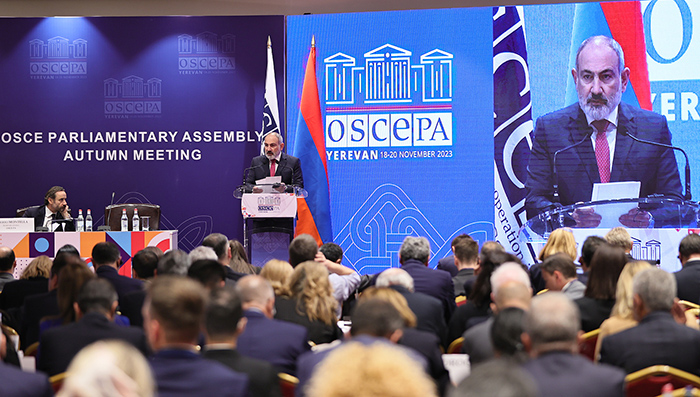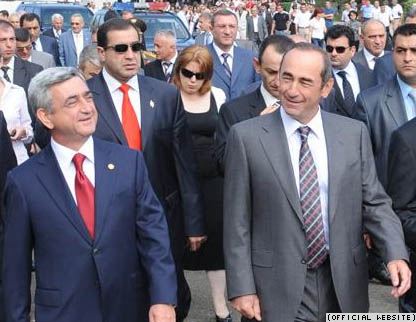YEREVAN — Armenian Prime Minister Nikol Pashinyan said Saturday that his country and Azerbaijan are speaking “different diplomatic languages” even though they were able to agree on the basic principles for a peace treaty.
Addressing the fall session of the Parliamentary Assembly of the Organization for Security and Cooperation in Europe (OSCE) that opened in Yerevan on November 18, Pashinyan lamented that Azerbaijan has yet to publicly commit to three principles for achieving peace that he said have already been agreed upon.
Pashinyan also said the lack of commitment deepens the atmosphere of mistrust and that rhetoric from Azerbaijani officials leaves open the prospect for renewed “military aggression” against Armenia.
“Yerevan and Baku still speak different diplomatic languages,” he said, adding that “we often do not understand each other.”
“We have good and bad news about the Armenia-Azerbaijan peace process,” Pashinyan was quoted as saying.
“It is good that the basic principles of peace with Azerbaijan have been agreed upon,” he said, referring to three principles for peace that he announced in late October, saying they had been worked out during talks with Aliyev in Brussels that were mediated by European Council President Charles Michel.
Those principles, he told the Armenian parliament at the time, were: Armenia and Azerbaijan recognizing each other’s territorial integrity, that the delimitation of the countries’ borders be based on the 1991 Alma-Ata Declaration, and that regional trade, transport, and communication be opened while respecting sovereign jurisdictions.
The downside is that by not acknowledging the agreement, Pashinyan said, Baku was deepening the atmosphere of mistrust.
Rhetoric by Azerbaijani officials that he said included referring to Armenia as “Western Azerbaijan” leaves the door open for further “military aggression” against Armenia, the prime minister said.
“This seems to us to be a preparation for a new war, a new military aggression against Armenia, and it is one of the main obstacles to progress in the peace process,” Pashinian said.
During the OSCE Parliamentary Assembly session in Yerevan on November 18, Armenian Parliament Speaker Alen Simonyan said there was a historic opportunity to establish peace between Armenia and Azerbaijan.
Simonyan also said Armenia is sincerely interested in normalizing relations with Turkey, having open borders and transportation links in the region, and engaging in negotiations without preconditions.
“I have a great hope that these negotiations will yield the desired results in the near future,” Simonyan said, stressing that the region needs peace.
OSCE Parliamentary Assembly President Pia Kauma has welcomed Armenia’s expressed interest in reaching a deal with Azerbaijan.
“It is important to maintain momentum in the peace process and for Armenia and Azerbaijan to reach a full settlement,” Kauma said. “We recognize that the background is very painful, but despite the difficulties, this moment should be seen as an opportunity for all to forge a new path for the region based on peaceful coexistence, mutual security, and economic prosperity.”










